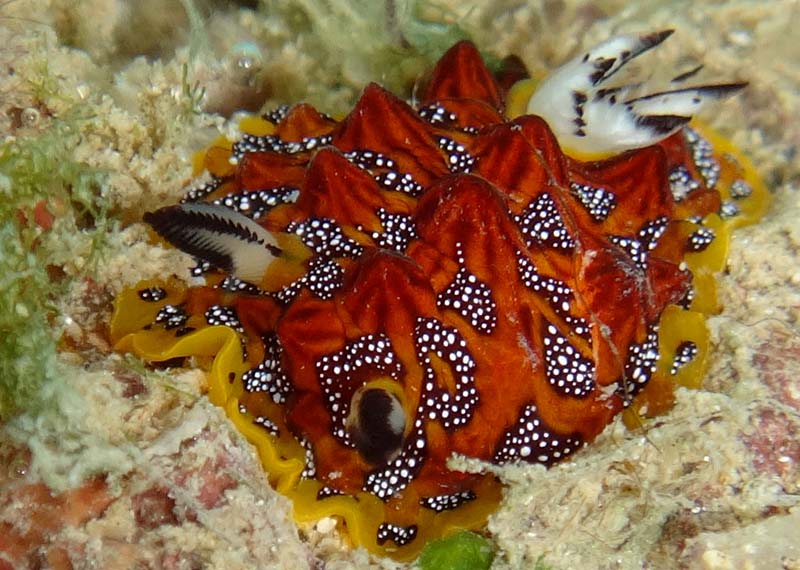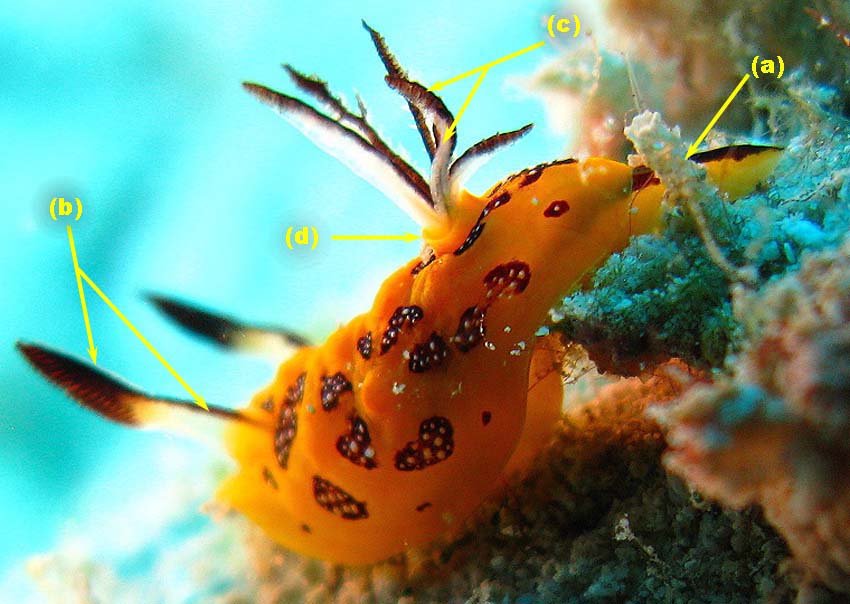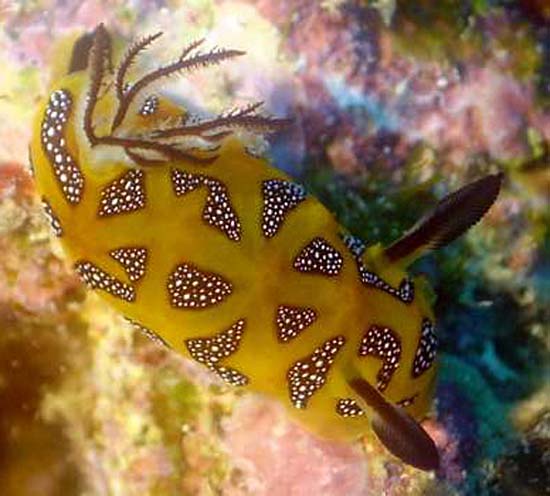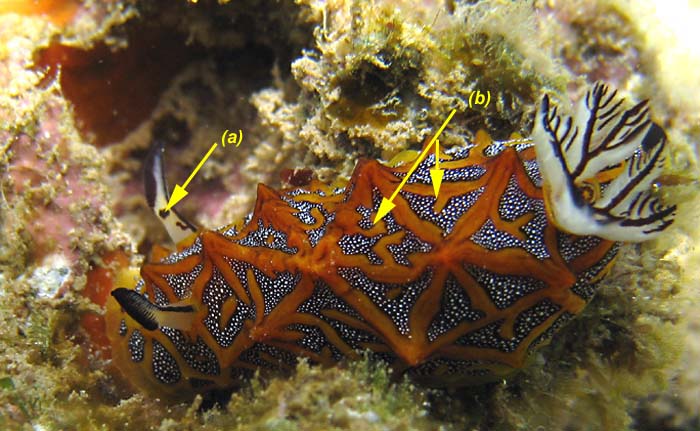This species has been observed on Reunion, Mayotte, Seychelles and Madagascar Islands
|
The
flattened ridges are yellow, yellow-brown to orange
and the spaces in between are dark brown with bright white spots
without concentration of white spots forming a band around the The rhinophores clubs are black (or dark purple-brown) and the stalks are translucent white with a dark streak up the posterior side The four to six sparsely branched gills have a dark purple-brown axis with white pinnules |
 |
|
| Showing species characteristics... |
Photo Sandrine
Flodrops
Mayotte, Passe en S, 12 m, 4 March 2009, size : 25 mm |
|
Remarks :
Synonymous : (according Worms)
- no synonymous
Bibliographic data :
There are two colour form.
- The Western Pacific colour form. The white specks and spots are realtively small except in a wide band around the mantle edge where they are numerous corresponded to H. tessellata
-The Indian Ocean colour form. The white spots are evenly spread over the brown parts of the mantle with no marginal concentration corresponded to H. indotessellata
The dorsum is entirely covered with irregular ridges. At the junctions of two or more ridges, they are raised into a short, conical tubercle. In the mantle margin there is a number of small conical tubercles.
There is a mid dorsal line down the posterior part of the foot extending beyong the mantle
There is a thin opaque white or yellow orange line around the mantle edge.
The rhinophoral and branchial sheaths are low and regular.
The rhinophores are elongate, with 19 lamellae in a 24 mm preserved length specimen.
The four to six sparsely branched gills, form a complete circle around the anus. In some specimen the axis is dark purple-brown with white pinnules, in other specimens the gills are white with scattered dark purple-brown patches.
The oral tentacles are conical.
The ventral colour is pale yellow with several large purple-brown spots in the mantle margin. There are numerous, longitudinal brown streaks or spots in the upper half of the sides of the foot.
It probably feed on siliceous sponge
References :
Bill Rudman Seaslug site : Sea Slug Forum : Halgerda tessellata
Nudipixel Halgerda tessellata
Publications :
Tibiriçá Y., Pola, M. & Cervera J.L. (2018). Systematics of the genus Halgerda Bergh, 1880 (Heterobranchia : Nudibranchia) of Mozambique with descriptions of six new species. Invertebrate Systematics. 32: 1388-1421
Other photos of Halgerda indotessellata :
 |
Philibert Bidgrain Mayotte, N'Gouja, less 1 m, 8 April 2015, size : 10-12 mm
|
|
Sandrine Flodrops Mayotte, Passe en S, 12 m, 4 March 2009, size : 25 mm (a) There is a mid dorsal line
down the posterior part of the foot extending beyong the mantle |
 |
 |
Marina Poddubetskaia Mayotte, Passe en S buoy n°8, 17 m, 4 November 2003, size : 16-18 mm The four to six sparsely branched gills have a dark purple-brown axis with white pinnules A specimen with large number of white dots in the dark area. |
|
Matthias Deuss Mayotte, fringing reef of Mtsange M'Bouini, less 1 m, 21 December 2009, size : 30 mm There are supernumerary black dots (a) on one rhinophoral stlalk A specimen with large number of white dots in the dark area and with not interconnected orange ridge (b) . |
 |
More photos from Indian Ocean
Mayotte, Halgerda tessellata with large number of white dots on the dark area, by Sylvain Le Bris
Reunion, Halgerda tessellata, at Les Avirons, by Sully Bachel
Seychelles, Halgerda tessellata, at Mahé, by Christophe Mason-Parker
Mayotte, a pair of Halgerda tessellata, at N'gouja, by Philibert Bidgrain
Madagascar, Halgerda tessellata, at Nosy Bé, by Alain-Benoît Rassat